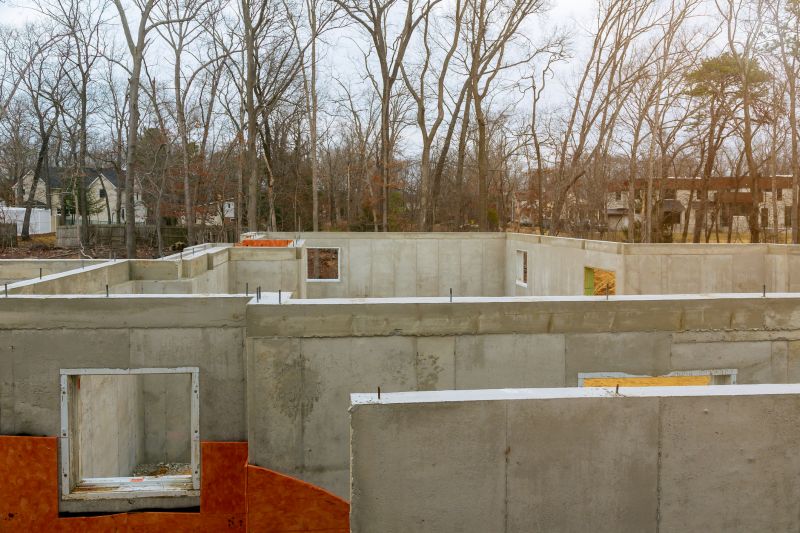Leading Selection of Products for Concrete Construction Needs
Explore a comprehensive range of tools and materials tailored to meet the demands of various concrete installation projects.
 Concrete installations require a diverse array of products to ensure durability, safety, and aesthetic appeal. From foundational elements to finishing touches, selecting the appropriate tools and materials is essential for successful projects. Whether installing new concrete surfaces or repairing existing structures, understanding the range of available products can help in making informed decisions. Proper preparation, reinforcement, and finishing are key steps that benefit from high-quality supplies tailored to specific needs.
Concrete installations require a diverse array of products to ensure durability, safety, and aesthetic appeal. From foundational elements to finishing touches, selecting the appropriate tools and materials is essential for successful projects. Whether installing new concrete surfaces or repairing existing structures, understanding the range of available products can help in making informed decisions. Proper preparation, reinforcement, and finishing are key steps that benefit from high-quality supplies tailored to specific needs.
Top Overall Option
Concrete Reinforcement Mesh
Concrete reinforcement mesh is a versatile product used to enhance the structural integrity of concrete slabs and surfaces. It helps distribute loads evenly, reduces the risk of cracking, and improves overall durability. Suitable for a wide range of applications from driveways to foundations, reinforcement mesh is a fundamental component in many concrete projects, offering a reliable way to strengthen concrete installations without significantly increasing complexity.
Types of Products For Concrete Installations
Concrete Mix
Pre-mixed or custom-blended concrete suitable for various construction and repair projects.
Reinforcement Mesh
Steel or fiberglass mesh used to strengthen concrete slabs and prevent cracking.
Form Liners
Molds used to shape concrete surfaces with decorative patterns or textures.
Concrete Sealers
Protective coatings applied to concrete surfaces to resist moisture and staining.
Bonding Agents
Adhesives that improve the bond between old and new concrete layers.
Expansion Joints
Materials that accommodate concrete movement and prevent cracking due to temperature changes.
Concrete Vibrators
Tools used to remove air pockets and ensure proper compaction of concrete.
Curing Compounds
Products that retain moisture in concrete to ensure proper curing and strength development.
Concrete Edgers and Groovers
Tools used to create clean edges and control joints in concrete surfaces.
Surface Finishing Tools
Trowels, floats, and brushes used to achieve smooth or textured concrete finishes.
Concrete Pumps
Equipment that facilitates the transfer of liquid concrete to hard-to-reach areas.
Concrete Repair Mortars
Specialized mixes designed for fixing cracks, chips, or damaged areas in existing concrete.
Waterproofing Membranes
Layers applied to concrete surfaces to prevent water infiltration.
Anchor Bolts and Fasteners
Hardware used to secure structural elements to concrete foundations.
Concrete Coloring Agents
Additives that provide color to concrete for decorative purposes.
Surface Texturing Tools
Tools used to create patterns or slip-resistant textures on concrete surfaces.
Form Release Agents
Coatings that facilitate the removal of formwork without damaging the concrete.
Popular Choices
A fundamental material used in a variety of concrete projects, available in different formulations.
Commonly used to add strength and reduce cracking in large slabs and foundations.
Popular for protecting concrete surfaces from stains and moisture over time.
Essential for managing movement in concrete structures, especially in large areas.
Widely used to achieve desired surface textures and smoothness.
Frequently employed to ensure proper compaction of poured concrete.
Often selected to enhance the longevity of concrete foundations and basements.
Commonly used to ensure proper adhesion between old and new concrete layers.
Popular for maintaining moisture during the curing process to improve strength.
Chosen for decorative concrete projects requiring textured or patterned surfaces.
Used frequently for patching and restoring damaged concrete areas.
Popular for creating slip-resistant or decorative finishes.
Commonly used to facilitate easy removal of forms after concrete sets.
Widely used to secure structural elements to concrete foundations.
Popular for decorative concrete projects requiring color accents.
Often chosen for projects requiring efficient placement of large volumes of concrete.
Essential for large slabs to accommodate movement and prevent cracks.
In the realm of concrete work, choosing the right products can influence the longevity and performance of the installation. For example, correct reinforcement materials can prevent cracking, while appropriate sealants can protect surfaces from moisture infiltration. Additionally, tools designed for precise mixing, pouring, and finishing can improve efficiency and results. Considering the environment and the specific application will guide the selection process, ensuring that each component contributes to a successful concrete project.
This guide aims to provide comprehensive insights into the essential products for concrete installations, highlighting a variety of options suitable for different project scopes. By understanding the roles of these products, homeowners and professionals alike can better plan and execute their concrete endeavors, leading to outcomes that meet their expectations in quality and durability.
Key Buying Considerations
- Project scope and size to determine the quantity and type of materials needed.
- Compatibility of products with the specific concrete mix used.
- Environmental conditions such as temperature and humidity during installation.
- Desired finish and surface texture for aesthetic or functional purposes.
- Reinforcement requirements based on load-bearing needs.
- Ease of application and availability of tools required for installation.
- Durability and longevity expectations for the concrete surface.
- Budget constraints and cost-effectiveness of different product options.
- Compatibility with existing structures or materials if performing repairs.
- Curing and drying times to align with project timelines.
- Protection against moisture, freeze-thaw cycles, or other environmental factors.
- Safety considerations when handling and applying products.
- Compliance with local building codes and standards.
- Availability of technical support or guidance from suppliers.
- Compatibility of decorative additives with concrete and other products.
